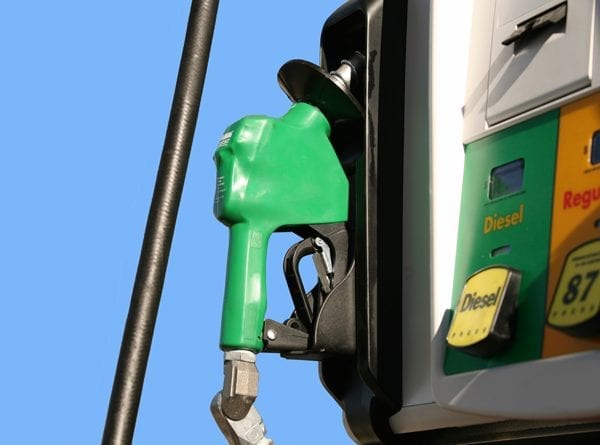How to Handle Fluctuating Fuel Costs
February 1, 2017
Dealing with the fluctuating cost of fuel is one of the most significant challenges for trucking companies. This is especially true for smaller companies that may not have the capital reserves or the resources to sustain a significant, rapid increase in the cost of diesel fuel.
When the cost of fuel is low, it doesn’t mean challenges disappear. It means you need to shift your operations to stay competitive and plan for the future.
When prices are high, it doesn’t mean the end is coming. It means you need to make wise decisions with your fleet and your drivers to ensure profitability.
So how should a trucking company handle fluctuating fuel costs? With the right plan, the right technology, and the right support staff, you can make fuel-cost fluctuations less stressful and less dramatic
How to Handle Fluctuating Fuel Costs
Improve Efficiency
Whether gas prices are high or low, consistently working to improve your efficiency is a wise choice for all trucking companies, no matter what the size. There are many steps you can take, and while some of them involve making major purchases, others are quite simple, involving slight operational adjustments that can be implemented promptly.
The most obvious efficiency improvement you can make is upgrading your fleet. If you are using dated vehicles that use a significant amount of fuel compared to modern trucks, you likely have a lot to gain by updating your fleet. Obviously purchasing up-to-date, efficient tractor trailers is not an easy task, but in the long run, it will provide consistency and savings.
If you haven’t already, take a significant look at your routes to see if there is an opportunity to make small adjustments. Could two or three routes be combined? Are there any over-lapping deliveries that should be merged? Is there a route pattern that could be adjusted? If you make enough small changes to your routes, you could bring fewer miles and less fuel consumption.
Save for Future When Costs Are Low
Sometimes, simple is best. In the trucking industry and any other industry for that matter, it can be easy to get swept up in complex strategies to reduce costs and increase profits. However, sometimes just squirreling away cash is a safe, simple plan.
When fuel costs are low or you have a lucrative contract that is enhancing profits, put some money in a liquid savings account where it can be reached, and utilized when needed. This isn’t investment money, this is more like an emergency fund, which could keep you afloat when fuel costs rise sharply.
Pass Low-Cost Fuel Savings on To Customers
Want to make customers and clients stay loyal for years? Then when costs are low, pass the savings on to your customers. This will not only help you remain competitive in the market, but it will also help you establish loyalty among your current customers. Having customers who love your company and your brand could be very beneficial when prices come back up.
Address Driver Behavior
Addressing driver behavior will not only increase efficiency and lower expenses, it can also enhance safety. Encourage, and if you have to, outright monitor your drivers to ensure they are making the right adjustments to reduce fuel consumption. Make it clear that these changes are for the good of the business as a whole and will benefit everyone, from top to bottom.
Many of the driving habits and behaviors you might address are basic skills that drivers will learn in CDL class, but it never hurts to review. For example, remind your drivers to monitor traffic up ahead to reduce gear changes. Remind them to use their momentum, utilize the clutch effectively and use cruise control if it’s available. Emphasize that they should avoid excessive idling and always make sure the tires are inflated to the right PSI.
Plan for Rising Fuel Costs
From month to month or year to year, fuel costs can go up and down. However, over the course of five, 10 or 20 years, fuel prices will inevitably go up. Make sure that the gradual increase in fuel price is a part of your overall, long-term business plan. If you do, you’ll be better equipped to meet the upcoming challenges of the trucking industry.
About Scale Funding
Scale Funding is an invoice factoring company serving businesses across the United States. For more information on factoring, call (800) 707-4845 for a free, no-obligation consultation and quote.


